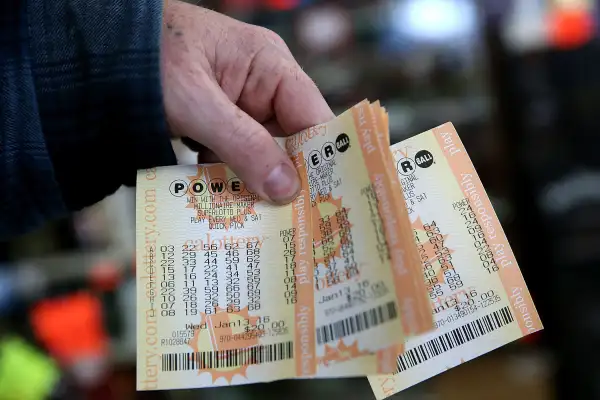Why Your Powerball Loss Wasn't a Complete Waste of Money

There's no question that the lottery is a bad proposition, financially speaking. It's highly likely the dollars you spend on Powerball tickets will simply float away, only to be seen a few days later on a giant check with someone else's name on it. You knew this going in, and now that you lost, it really shouldn't change much. Still, unless you bought a ridiculous number of tickets, the expense probably wasn't a total waste.
Even though there is a 0.00000000% chance you will win the jackpot, and a 0.0000000% chance you'll win the $1 million fixed prize, it's also not a particularly damaging financial blunder. At it's core, you only risked $2 for the chance, albeit infinitesimal, of becoming fabulously wealthy. Throwing your hat in the ring for $2 to dream big can yield a pleasure worth significantly more than $2.
There's also the interpersonal aspects to consider.
"When you think about why people spend discretionary money or choose one particular brand over another, it’s often to feel a connection to others," Money.com contributor Kit Yarrow, a consumer psychologist who recently wrote Decoding the New Consumer Mind, told us in an email.
In some ways, the record-breaking jackpot united the country, collectively entertaining the fantasies, dreams, and what-ifs of millions. I myself remember noting that if I won the two-person pool with my friend Dan, I would have given our friendship a pre-tax valuation of $465 million. That was sure something to think about.
"It’s like going to a concert," Yarrow suggested, while still clarifying that she's not really recommending that people buy lottery tickets. "You might not actually talk to anyone there but you’re all sharing an experience and it feels good."
As the Wall Street Journal notes, there's a parallel between the Powerball and a trip to Vegas. Even if you lose at the tables (and you likely will), the adventure as a whole might be a net gain when you factor in the free drinks, entertainment value, and the awesome time you had with your friends pretending to be Dustin Hoffman or Sean Connery. You're not necessarily investing or gambling; you're just paying for something—only there's a small possibility you'll get your money back...or more.
"$2 was a bargain for the moments of fantasy and the pleasurable mental exercise of wondering how you’d spend those millions," said Yarrow. "I imagine many friends learned more about each other and had some healthy hearty debates over this topic."
The lottery might not seem like a waste of money when you think of it that way.
Read next: Why the 3 Big Powerball Winners Are Even Luckier Than You Thought
Considering whether dollars spent on lottery tickets is a waste can also open some uncomfortable doors, however. Much has been said of the lottery being a regressive tax, because it preys chiefly on the poor, who may not realize its abysmal outlook as an investment. (Though as jackpots rise, so does participation from the higher tax brackets.)
Underscoring the problem, notes Vox, one in five Americans believe a lottery win is the only path to substantial savings. These criticisms are valid, but only in impugning the concept of playing the lottery on a regular basis, when the pots are normally small and the public consciousness of the game is smaller still. It's obviously a horrible idea to regularly spend lots of money playing the lottery when you have trouble paying your bills.
As a general guideline for understanding when buying lottery tickets is not a waste of money: Only play when the jackpot is astronomically high, and when you can easily afford to lose the cost entry, and don't lay too much on the line—just enough to give yourself a tiny shot.